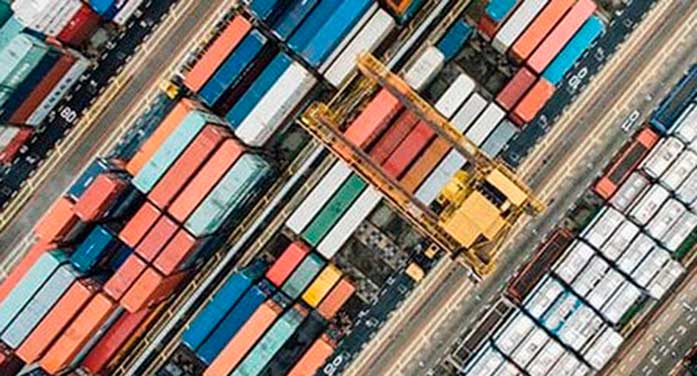 The phrase “build back better” has drawn ire globally after Western politicians seemingly relished the damaging impact of COVID-19 lockdown policies and the opportunity offered to radically change our economies.
The phrase “build back better” has drawn ire globally after Western politicians seemingly relished the damaging impact of COVID-19 lockdown policies and the opportunity offered to radically change our economies.
Extremist, insensitive and ill-timed policy initiatives from world leaders have effectively destroyed any hope of the general public getting behind measures designed to genuinely improve lives after the world leaves lockdown.
But the news of an enhanced United Kingdom-Canada trade deal might come close to restoring hope.
Liz Truss, the British secretary of state for international trade, overseeing the nation’s efforts to establish new global free-trade agreements in the wake of its exit from the European Union. During a Conservative Friends of Australia event, she announced that she had committed to an “enhanced trade agreement with Canada.”
Truss added that she was working closely with other “like-minded” trade partners on various issues and even indicated that the new global partnerships being formed would be used to tackle problem countries like China.
On March 22, the United States followed Britain, Canada and the European Union’s footsteps by agreeing to co-ordinated sanctions against China over the communist nation’s continued human rights abuses, including the Uyghur genocide.
British Foreign Secretary Dominic Raab also announced sanctions against four senior Chinese officials and the public security bureau of the Xinjiang Production and Construction Corps to “complement action by the European Union, Canada and the United States.”
The U.K.-Canada trade deal, which was ratified with Canada on March 19, supports trade that was worth £22.4 billion (C$38.8 billion) in 2019. It’s designed to “help both countries build back better from the COVID-19 pandemic by supporting high-quality jobs in industries such as automotive and food and drink,” according to the British Department for International Trade.
Under the deal, some £42 billion of tariff burden will be relieved on U.K. exports, with plans to eliminate tariffs on cars, soft drinks, beef, fish and chocolate bars. Canada will also export salmon, biscuits and maple syrup tariff-free.
Truss said that there are plans to take the U.K.-Canada trading relationship to “new heights” later in the year, “bringing jobs, opportunity and prosperity for our people.”
While the official announcement was not totally devoid of references to the green agenda and social-justice-focused talking points, the announcement’s primary message was very much one of jobs and the rebuilding of the British and Canadian economies.
It was a refreshing change following a year of Great Reset talk from the World Economic Forum (WEF) and Canadian Prime Minister Justin Trudeau’s promise of using COVID-19 as an “opportunity” to radically “reimagine economic systems.”
In January alone, Canada lost 213,000 jobs and the United Kingdom’s economy is reportedly losing £521 million per day with over six million workers still on the furlough scheme.
For the U.K., at least, building new relationships with other world powers is very much a case of building back better, not just from the lockdown recession but also from its previous entanglement with the European Union.
For Canada, much work still needs to be done to restore economic normalcy, but confidence is high. Canadian CEOs are surprisingly positive about Canada’s economic outlook, with confidence rising to 81 per cent among the leaders of the country’s top publicly traded companies, according to the KPMG Global CEO Outlook survey. Six months ago, that figure was just 48 per cent.
The International Monetary Fund (IMF) also predicts that Canada’s economy will grow 4.4 per cent this year after contracting 5.4 per cent last year – good news, but not a solution to massive public debt and high unemployment that will linger even after lockdown.
With the IMF also predicting unemployment will drop to 8.1 per cent this year and 6.9 per cent next year, both above pre-COVID levels, the new U.K.-Canada trade deal is a welcome addition to a sensible, strategic and focused economic recovery plan. When people’s livelihoods are on the line, meaningful trade deals and opportunities mean more than popular talking points about the Great Reset and hurried green policy.
Canada would be wise to pursue this trade deal further, and others like it. With new U.S. President Joe Biden seemingly hostile to both Canada and the United Kingdom, building stronger economic ties with Western allies is a timely and sensible measure. It will not only prove popular with the public but could lead to a more effective and co-ordinated response to China’s expansionist agenda.
This may truly be the best way to build back better.
Jack Buckby is a research associate with the Frontier Centre for Public Policy.
Jack is one of our Thought Leaders. For interview requests, click here.
The views, opinions and positions expressed by columnists and contributors are the authors’ alone. They do not inherently or expressly reflect the views, opinions and/or positions of our publication.
© Troy Media
Troy Media is an editorial content provider to media outlets and its own hosted community news outlets across Canada.


